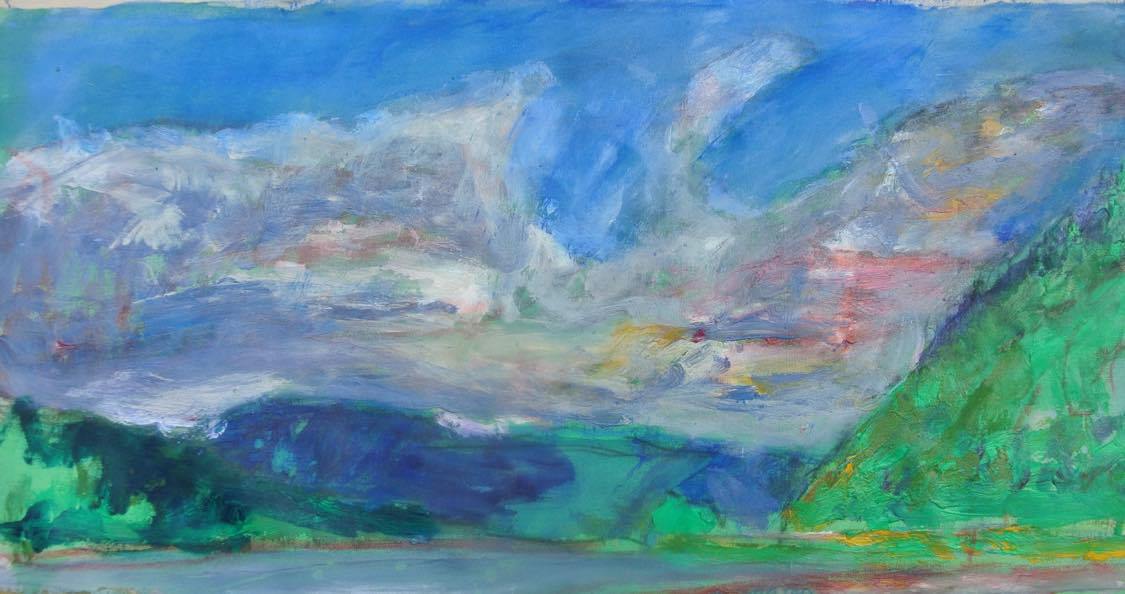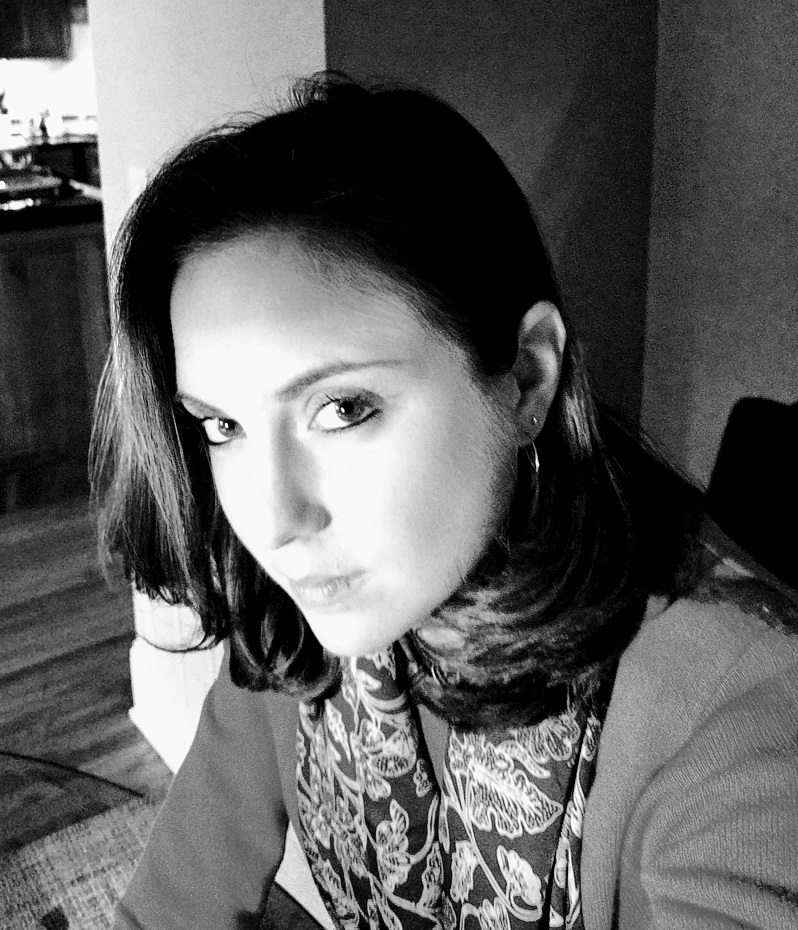
Skeena Valley View, acrylic on canvas, by Edward Epp, 1996
ANDRÉANA E. LEFTON
My Name is Lida
I’m seventeen.
Tall, with gold-brown eyes,
thick black hair.
Think of pine trees, in the mountains.
I know what I know and
I’m learning to listen
even to the small noises —
my sisters whispering
white roses wilting —
to the silences
I don’t understand.
Mohareb
For months — no, years —
before we left Tehran,
rumors trailed us like feral dogs,
mouths filled with danger.
Mohareb
was the word that prowled in the streets,
snapped at our heels.
Mohareb
tracked us
to the marketplace, to school every day.
Mohareb
my friends whispered
behind my back when they knew
I could still hear them.
Infidel, enemy of God.
Her Touch
We leave Tehran on Mother’s Day,
December 16, 1982.
Some of the women on the street
carry pink roses or white hyacinths.
The flowers glow neon-bright
against their black chadors.
A large black car pulls up outside our house.
Salimeh comes with us to the door.
Sali, our housekeeper,
who has become —
over these thirty years living with us —
an auntie, a friend.
We can’t tell her the truth.
We are leaving for good.
Whose good?
Ours, not hers.
Guilt eats at my heartstrings,
loosening me from Salimeh.
The last thing she does
is press her thumb
to the middle of my forehead.
Night Journey
I.
I’m not asleep, and I’m not awake.
My sister, Shahnaz, plays with Mazi and Kami
in the backseat to keep them quiet.
Outside, Ahmad and the men jack up
the car to change a flat tire.
Drumbeats of rain, the whoosh of a passing truck.
Sleepiness and thirst
hold me, rock me, take me away from myself —
has our car just sprouted wings?
II.
These midnight wings are invisible
except for moonlight
glancing off their enormous span.
A few beats, just to practice, then —
my stomach lifts and I am soaring over Iran,
the barren land,
silver blue, slides into blackness.
Nothing to see except stars above and below.
All the celestial and man-made stars
fuse into a single light that warms me —
wraps me like a stranger’s gift
to the universe.
Wilderness Sky
Look up:
Mountains shadow the stars
and the sky is a huge mouth,
devouring.
Bodies press against my rib cage,
the only warmth in this emptiness
of rock and wind.
We sit, propped
against the biting metal sides
of the truck.
Icy needles jab my legs,
which I hug to my chest,
fearing frostbite.
Toes ache inside my school shoes —
black T-straps.
I bought them last November,
drinking mango juice
on Valiasr Street, under an archway
of bloodred sycamore trees.
Attack
Light floods our eyes.
We stagger to our feet,
half-sleeping.
“GET DOWN GET DOWN GET DOWN!”
screams the boss.
Bullets pelt
against metal and glass.
Brain freezes
then flies into action.
We dive into the mud
under the trucks
dragging our bodies behind.
My Blood Is Gone
It disappeared
when we reached Pakistan.
My flow stopped.
My clothes hang loose.
The moon slipped
from my stomach and rolled
through the streets
picking up speed
like a spool of dark red
forever out of reach.
Gate of All Nations
In my sleep, somewhere on the road
from Tehran to Zahedan,
I flew to the camps
and visited refugees.
It made me feel good,
being the one to visit, kiss cheeks,
and leave.
Now, things are different.
Now I am undocumented.
Now I am...one of Them.
The United Nations Gate is metal,
heavy, locked and high.
We stand for hours,
waiting for papers.
The sun climbs, pulling the sweat
from our armpits.
Greedy sun, bloody heat.
The line grows and grows,
rumors replicate, out of control.
Our number isn’t called.
Come back tomorrow.
I don’t think those gates
opened, even once.
Based on the life story of Lida T. and her family, Bahá’ís who escaped Iran during the Revolution in the 1980s.

Andréana E. Lefton

